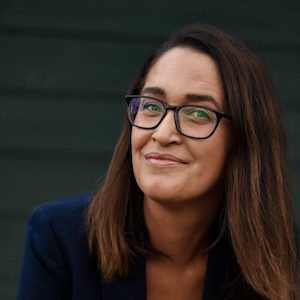Dr. Jennifer Bernstein is Editor-in-Chief of the University of California Press journal “Case Studies in the Environment” and adjunct faculty at Texas Tech and Tarleton State Universities.
A Graduate-level Wikipedia editing assignment in Environmental Studies
Course: ENVS 5185: Research and Writing in Environmental Studies (Tarleton State University)
Enrollment: 18 graduate students
Final reflections analyzed: 16

In Fall 2025, my graduate students in ENVS 5185 completed the “Wikipedia assignment,” a forward-facing assignment in which they edited environmental articles connected to their research interests. They selected an article, identified gaps, located reliable secondary sources, and contributed neutral, well-cited content. Students worked on topics such as PFAS contamination, climate change in the Caribbean, carbon capture and storage, dead zones, fossil communities, air pollution, and the Dallas Arboretum. The project emphasized Wikipedia’s policies and approach- neutrality, verifiability, and no original research. In addition to improving real-world information quality, the project strengthened students’ public-facing science communication skills at a time when transparent, accurate environmental information is more important than ever.
Wikipedia vs. AI: A Different Model of Knowledge
Several students contrasted Wikipedia’s open, well-documented approach to knowledge production with the dominance of AI tools that distribute information through proprietary, black-box systems. As one student noted, “Wikipedia requires sources you can check. AI doesn’t show where anything comes from.” Another appreciated that Wikipedia, despite its imperfections, “lets you see the scaffolding of knowledge,” whereas AI systems obscure authorship and provide few mechanisms to correct inaccuracies. Perhaps ironically, students described editing Wikipedia as a form of public service, in part because its accuracy shapes the environmental information that large language models later reproduce.
Based on student feedback, the project effectively made the point that Wikipedia exemplifies a non-commercial, bottom-up model of knowledge creation that operates differently (and quite successfully) when compared to the opaque, for-profit, AI-dominated information systems currently reshaping education.
Communicating Science Neutrally
The assignment highlighted a gap in graduate training, which is the ability to translate scientific knowledge neutrally to public audiences. Most students entered the project with considerable subject-matter expertise, making them an ideal Wikipedia editor, but ironically that same expertise left them challenged when asked to set aside their often-strong opinions to match Wikipedia’s tone. While many students described the challenge of writing neutrally about issues they were passionate about, they recognized the value of communicating clearly to nonspecialist audiences and thus pushed themselves. One student stated that, “Neutrality doesn’t mean watering down the truth- it means giving people space to think.” Many stated that these skills, despite being tailored to Wikipedia, would serve them in their academic research as well.
Source Evaluation in a Messy Information Landscape
Almost every student noted that their chosen Wikipedia article contained on low-quality and often-dated references such as old datasets, outdated data graphics, broken citations, and lack of recent findings. Improving the articles forced students to expand their research and evaluate sources rigorously. They were required to read Robert Harris’s “Evaluating Internet Sources” article and apply Harris’s CARS checklist (Credibility, Accuracy, Reliability, Support).
Through the process, students recognized that serving a general audience required credible sources beyond peer reviewed journals, such as:
- government and regulatory data (EPA, NOAA, WHO, state agencies)
- institutional or tribal sources
- reputable scientific and news organizations
Students gained the practice of using CARS checklist to assess information quality across a diversity of sources.
Connecting Wikipedia Work to Their Own Research
Students integrated what they learned doing this assignment with their academic work. Many selected articles closely tied to their thesis projects. One student observed that the project “opened new research pathways I hadn’t considered.” Another described how the discipline of paraphrasing and source-checking “will absolutely change how I vet literature for my thesis.”
Although the assignment was not structured like a traditional literature review, students repeatedly acknowledged that the skills they practiced, such as source evaluation, neutrality, paraphrasing, and writing for diverse audiences, would directly strengthen their academic research.
Wikipedia as “a lot better than it was”
A consistent theme was how dramatically students’ perceptions of Wikipedia shifted. Many began the semester believing Wikipedia was inherently unreliable “because that’s what we were told in school.” Nearly all ended with a deeper appreciation for Wikipedia’s moderation systems, oversight, and community-moderated accountability. More importantly, they saw firsthand that not-for-profit, collaborative knowledge production can produce high-quality environmental information, often better and generated immensely more transparently than commercial AI systems.
Conclusion
This assignment offered students a hands-on experience engaging with a transparent, collaborative, and traceable model of public scholarship. They developed ownership over “their” Wikipedia page. One student was satisfied when they observed that their article moved “from a small, poorly written page to something that resembled a real resource” after multiple rounds of reference improvements from themselves and the broader Wikipedia community. They felt the reward of contributing to an intellectual community in real time and made a substantive contribution to the information landscape on a topic they cared about. Instead of writing a research paper that would die on my desk, their work took up space in the world.
Student reflections showed that contributing to Wikipedia helped them learn how to navigate a rapidly changing information landscape, and that public facing science communication is not peripheral to their academic training but central to its improvement.
Interested in incorporating a Wikipedia assignment into your course? Visit teach.wikiedu.org to learn more about the free resources, digital tools, and staff support that Wiki Education offers to postsecondary instructors in the United States and Canada. Apply by December 1 for priority consideration for spring 2026 courses.
